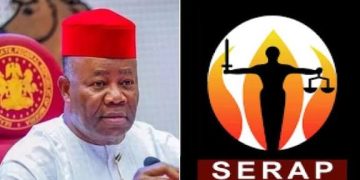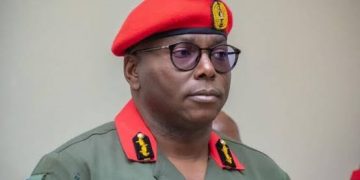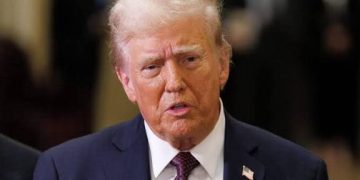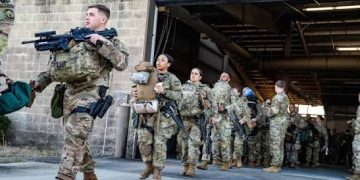Three different decisions of the highest court in the country over the past two decades illustrate how the judicial conspiracy against popular sovereignty in Nigeria has prospered. In 2008, the Supreme Court ruled that no foundational or legal principles govern elections in Nigeria. In other words, Nigeria lacks a legal standard for a free, fair, or credible election.
The same court has ruled that in organising elections, the Independent National Electoral Commission (INEC) is not bound by its own administrative regulations and guidelines. Therefore, INEC can behave with impunity as a lawless institution, and citizens and political parties have no right to expect anything from the commission. The court has equally held that in Nigeria’s version of elective government, judges have the power to declare the majority votes in an election entirely “wasted” and to install manifest losers as winners.
These decisions have combined to render elections in Nigeria meaningless as expressions of the people’s will. In these judgments and until now, the focus was on elections. The effect on citizenship, as the basis of the right to vote and to constitute a government, was arguably indirect.
In a decision made on July 23, this past week, Oluseyi Owoeye, a judge of the Federal High Court in Lagos, took a dangerous step in this project of judicial erosion of the constitutional foundations of elective government. According to the judge: “any question bordering on the action or omission of any or person [to] guarantees (sic) the participation by the people in their government is not justiciable before any Court of law in Nigeria.” As far as wilful and cynical jurisprudence goes, this takes the prize.
Given the significance of this judgment for civic rights in Nigeria, it is essential to provide some context so that those interested can follow the issues fully.
Chapter IV of Nigeria’s Constitution guarantees a set of Fundamental Rights, which the courts are required to enforce through an expedited process outlined in the Fundamental Rights (Enforcement Procedure) (FREP) Rules, made by the Chief Justice of Nigeria (CJN). For reasons that are not entirely clear, however, the rights guaranteed in Chapter IV do not include the right to vote or to participate in government.
Instead, Chapter II of the same constitution contains two important provisions of relevance to this. First, section 14(2)(a) exhorts that “sovereignty belongs to the people of Nigeria from whom government through this Constitution derives all its powers and authority.” As a complement, section 14(2)(c) follows this up with the promise that “the participation by the people in their government shall be ensured in accordance with the provisions of this Constitution.” However, in an earlier stipulation in section 6(6)(c), the same constitution precludes courts from exercising their powers to enforce these provisions of chapter II.
There are at least two exceptions to this constraint. First, under item 60(a) in the Exclusive Legislative List, the National Assembly may make laws “to promote and enforce the observance of the Fundamental Objectives and Directive Principles contained in this Constitution”, and the courts will be bound to enforce such laws. Second, under section 12(1) of the same constitution, the courts are bound to enforce the provisions of a treaty which has been enacted into law by the National Assembly, even if such a treaty covers issues contained in Chapter II of the Constitution.
In Nigeria, the African Charter on Human and Peoples’ Rights straddles both exceptions. Article 13(1) of the Charter makes up for the omission of a right to vote in the constitution by guaranteeing the right of citizens to participate in their government. In this sense, the Charter implements the provisions of Section 14 in Chapter II of the Constitution. The National Assembly enacted it into domestic law through the African Charter on Human and Peoples’ Rights (Ratification and Enforcement) Act, and the Supreme Court has recognised that the African Charter “is now part of the laws of Nigeria and like all other laws the Courts must uphold it.” The FREP Rules are explicitly available for the enforcement of the rights contained in the African Charter.
This context is essential to explain why the decision made by Oluseyi Owoeye of the Federal High Court in Lagos this past week is both cynical and dangerous. In reaching this decision, the judge claimed that he could not enforce the guarantee of the right to participation in the African Charter on Human and Peoples’ Rights because participation is only contained in Chapter II of Nigeria’s Constitution, a provision to the enforcement of which he cannot lend his judicial powers.
That is manifestly disingenuous. It is also plainly misguided as a matter of law. If a judge cannot protect the right of citizens to participate in their government, why is he a judge? Will he prefer to protect stolen elections instead?
The facts are also relevant here. On 20 July 2023, a class of Nigerian citizens instituted this case. The defendants were the INEC, the National Human Rights Commission (NHRC) and the Attorney-General of the Federation. Against INEC, they alleged multiple violations, including exclusion from the register of voters, deliberate mismanagement of election logistics, wilful destruction of voters’ cards, and complicity in election-related violence.
Both the INEC and the NHRC entered an appearance. The case took two years to come to judgment, but despite repeated reminders and orders by the Court, the Attorney-General of the Federation, a named defendant in a matter of such high civic and constitutional significance, could not be bothered to file any defence or instruct any of the numerous lawyers in his office to appear on his behalf. It is possible that the judge took a cue from the attorney-general’s attitude and decided to find a way to play fair and avoid getting into the substance of the case. If that is so, then he settled for the worst possible escape route.
The logic of precluding courts from lending their powers to enforce the right to participate in government under an elective system essentially undermines any notion of effective citizenship. Courts cannot decline to protect the right to participate on the one hand and, on the other, agree to protect the integrity of elections or the obligations of those required by law to ensure that the ballot is credible. Effectively, if upheld on appeal, this judgment will license judicial encroachment on Nigeria’s civic institutions.
Surprisingly, a case of this scope in its implications could have slipped so far beneath the radar of public attention and judgment. This case will naturally go next to the Court of Appeal. Hopefully, it will merit the attention of a full panel of the Court of Appeal. At that point, civic groups will likely apply to join as interested parties in the appeal, and other groups may also submit similar applications to join as friends of the court (amici curiae).
This judgment by Oluseyi Owoeye of the Federal High Court is the latest in an increasingly fevered judicial effort to decapitate citizenship as the basis for government in the country. It is egregiously perverse and should not be allowed to stand.
It is worth recalling that among the truly unsung heroes of the resistance to military rule in Nigeria in the last three decades of the twentieth century were judges in various courts around the country who opposed or constrained the excesses of military rule through their judgments. If the country’s current experiment in civil rule fails, it will be because some judges have replaced soldiers as those most enthusiastic about suffocating elective and accountable government founded, as the constitution mandates, on the will of the people.
A lawyer and a teacher, Odinkalu can be reached at chidi.odinkalu@tufts.edu






































